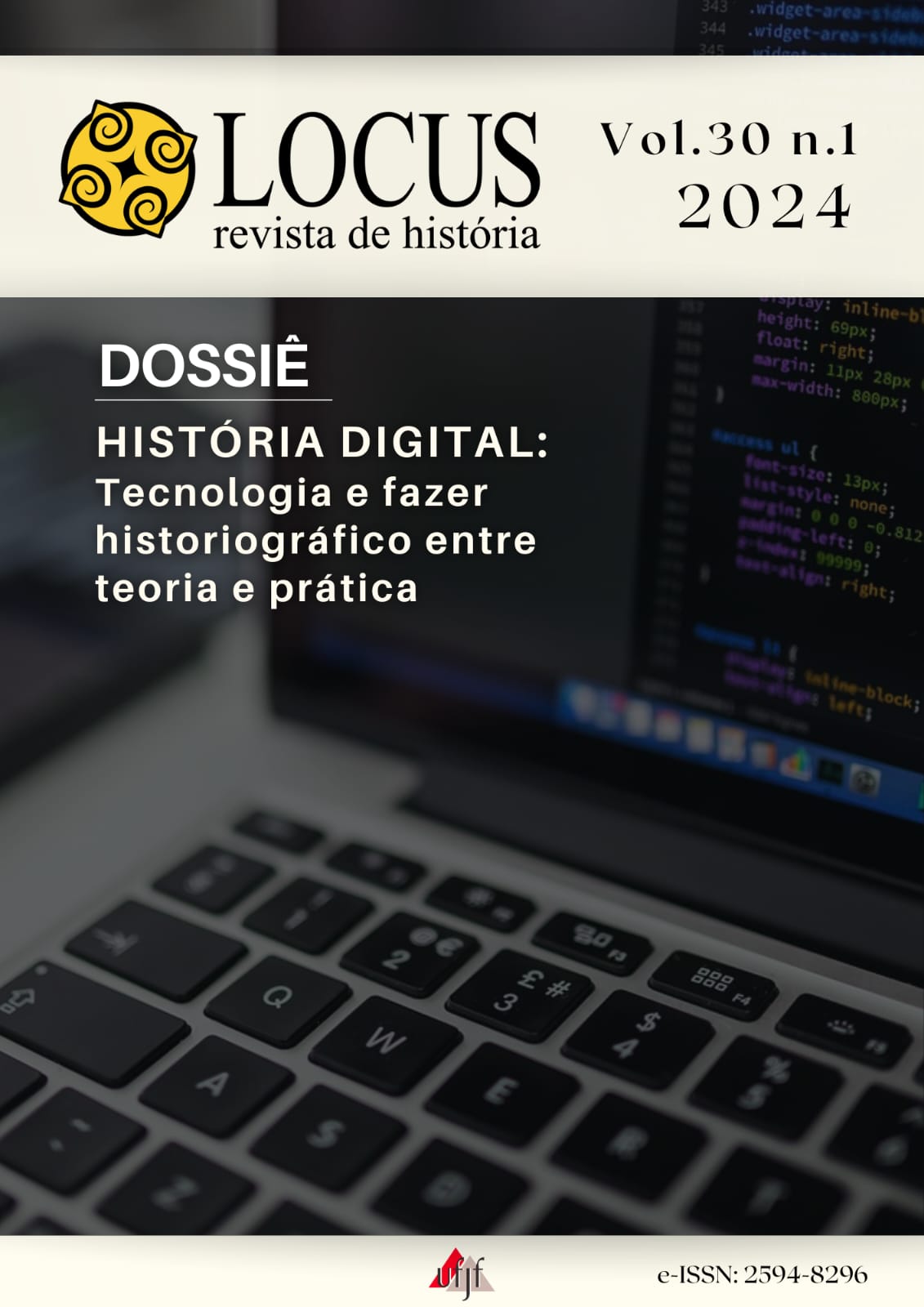Dialogue with Communication in the building of digital historical narratives in games: The culture of the Huni Kuin indigenous people
Published 2024-08-26
Keywords
- Digital History. Communication for Social Transformation. Eletronic games. Huni Kuin indigenous people. Cultural identities.
How to Cite
Copyright (c) 2024 Helena Schiavoni Sylvestre, Camila Escudero

This work is licensed under a Creative Commons Attribution 4.0 International License.
Abstract
This paper proposes a dialogue between the fields of Digital History and Communication for Social Transformation (CCS), in the analysis of the electronic game “Huni Kuin: Yube Baitana”. Our objective is to verify how the history of the culture and identities of the Kaxinawá indigenous people – or Huni Kuin, as they call themselves – is narrated. To do this, we start from a qualitative approach, using the exploratory analysis technique based on the recording and representation in the game of: 1) Stories and myths; 2) Traditional art; 3) Cultural soundtrack; 4) Mythical figures and supernatural beings; 5) Huni Kuin language. Among the main results, we highlighter the convergences between the fields of Digital History and CCS to understand processes of preserving memory and cultural identity, innovation and dissemination of knowledge.
Downloads
References
- Amazônia Latitude. O resgate da tradição Huni Kuin, 2019. Disponível em: https://www.amazonialatitude.com/2019/10/16/o-resgate-da-tradicao-huni-kuin/#:~:text=Sua%20hist%C3%B3ria%20%C3%A9%20marcada%20por,deles%20permaneceu%20em%20territ%C3%B3rio%20brasileiro. Acesso em: 18 mar. 2024.
- Bello, R. S.; Vasconcelos, J. A. O videogame como mídia de representação histórica. Revista Observatório, Palmas, v. 3, n. 5, p. 216-250, agosto. 2017.
- Brasil, E.; Nascimento, F. L. História digital: reflexões a partir da Hemeroteca Digital Brasileira e do uso de CAQDAS na reelaboração da pesquisa histórica. Estudos Históricos Rio de Janeiro, v. 33, n. 69, 196-219, Janeiro-Abril 2020.
- Briggs, A.; Burke, P. Uma história social da mídia: De Guttemberg à Internet. Rio de Janeiro: Jorge Zahar Ed., 2004.
- Escudero, C. Comunidades em festa: a construção e expressão das identidades sociais e culturais do imigrante nas celebrações das origens. Tese (Doutorado em Comunicação e Cultura) – Universidade Federal do Rio de Janeiro (UFRJ), Rio de Janeiro, 2017.
- Gil, Carlos. Métodos e técnicas de pesquisa social. São Paulo: Atlas, 2008.
- Gumucio-Dagron, A. Comunicación para el cambio social: clave del desarrollo participativo. Signo y Pensamiento, 58 (XXX), pp. 26-39, 2011.
- Hall, S. Identidade Cultural e Diáspora. Revista do Patrimônio Histórico e Artístico Nacional, n.24, p.68-75, 1996.
- Hall, S. A identidade cultural na pós-modernidade. Rio de Janeiro: DP&A Editora, 2005
- IBGE – Instituto Brasileiro de Geografia e Estatística.; FUNAI – Fundação Nacional do Índio. O Brasil Indígena. Projeto de Promoção da Cultura Indígena Asurini do Xingu – Museu do Índio, 2009. Disponível em: https://indigenas.ibge.gov.br/images/pdf/indigenas/folder_indigenas_web.pdf. Acesso em: 19 mar. 2024.
- Instituto Nawá. Site oficial. Os Huni Kuins. Instituto Nawá, 2024. Disponível em: <https://institutonawa.org/pt_br/uncategorized/lorem-ipsum-dolor-3/> Acesso em: 18 mar. 2024.
- Lucchesi, A. Por um debate sobre História e Historiografia Digital. Boletim Historiar, n. 02, mar./abr. 2014, p. 45-57.
- Lucchesi, A. História e Historiografia Digital: diálogos possíveis em uma nova esfera pública. Trabalho apresentado no XXVII Simpósio Nacional de História – Conhecimento Histórico e Diálogo Social - ANPUH. Natal (RN), de 22 a 26 de julho de 2013. Disponível em: https://anpuh.org.br/uploads/anais-simposios/pdf/2019-01/1548874925_2b1f92411cb733640b4eba3247c5ba43.pdf. Acesso em: 13 mar. 2024.
- Maynard, D. C. S. Passado eletrônico: notas sobre história digital. Acervo, Rio de Janeiro, v. 29, n. 2, p. 103-116, jul./dez. 2016 – p. 103-116.
- Nicodemo, T. L.; Rota, A. R.; Marino, I. K. (Orgs.). Caminhos da história digital no Brasil. Vitória: Milfontes, 2022.
- Peruzzo, C. M. K. Conceitos de comunicação popular, alternativa e comunitária revisitados e as reelaborações no setor. ECO-Pós, v. 12, n. 2, maio-agosto 2009, p.46-61.
- Soares, F. da S.; Rovai, M. G. de O.; Carvalho, B. L. P. de.; Porto Jr., F. G. R. (Orgs.). História digital: perspectivas, experiências e tendências. Revista Observatório, Palmas, v. 3, n. 5, agosto. 2017.
- Sodré, M. Antropológica do Espelho – Uma Teoria da Comunicação Linear em Rede. Petrópolis: Vozes, 2012.
- Thompson, J. B., A mídia e a modernidade: Uma teoria social da mídia. Petrópolis: Vozes, 2014.

